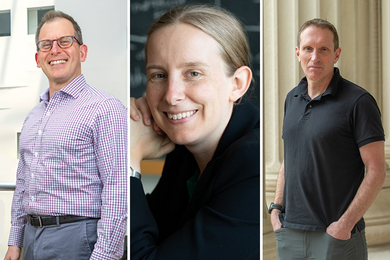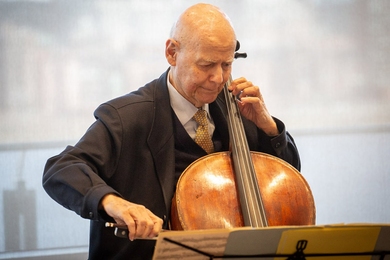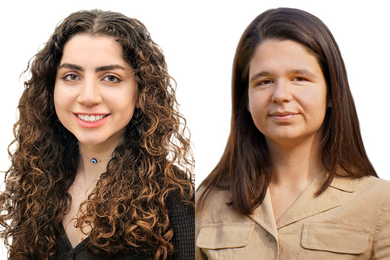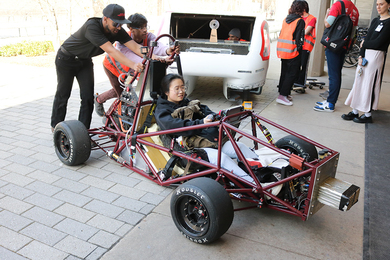When Ashley Finan receives her PhD in nuclear science and engineering (NSE), it won’t be so much the culmination of an academic career as a milestone in a journey begun a decade ago. Finan credits some unique opportunities at MIT with setting her on a path toward a “place where it’s possible to make the most positive impact” on clean energy solutions and climate change.
Finan, 27, entered MIT as an undergraduate in 2002 having “dreamt about going here since I was a little kid,” she says. She arrived with an interest in physics and its practical applications, and positively disposed to nuclear energy, having grown up a scant 10 miles from two Connecticut nuclear plants that seemed to her a good way to reduce dirty air emissions. “I felt strongly coal was doing a lot of damage … and that nuclear was a better source of energy.” Given her own aptitudes and interests, NSE and physics seemed a natural fit to her, and Finan leapt into Course 22.
From the beginning, she sought to balance classroom time with real-world experience, and she took every advantage of MIT’s undergraduate research program. She interned at Idaho National Laboratory, a hub for next-generation nuclear reactor research, collaborating with top-flight scientists from industry and other universities. Even while completing undergraduate requirements in reactor design and radiation, Finan engaged in challenging research ventures. A senior design project led to an internship for a firm attempting to pair nuclear energy technology with oil sands extraction in Canada; this became the basis of Finan’s master’s degree work. It was also a turning point for her studies. She learned “how oil companies and nuclear engineering companies really work,” and how “the biggest concerns were actually economic and political.” Finan returned to MIT “with a better understanding of the issues faced by the energy industry,” she says. “This helped crystallize my interest in policy.”
Read full feature
Finan, 27, entered MIT as an undergraduate in 2002 having “dreamt about going here since I was a little kid,” she says. She arrived with an interest in physics and its practical applications, and positively disposed to nuclear energy, having grown up a scant 10 miles from two Connecticut nuclear plants that seemed to her a good way to reduce dirty air emissions. “I felt strongly coal was doing a lot of damage … and that nuclear was a better source of energy.” Given her own aptitudes and interests, NSE and physics seemed a natural fit to her, and Finan leapt into Course 22.
From the beginning, she sought to balance classroom time with real-world experience, and she took every advantage of MIT’s undergraduate research program. She interned at Idaho National Laboratory, a hub for next-generation nuclear reactor research, collaborating with top-flight scientists from industry and other universities. Even while completing undergraduate requirements in reactor design and radiation, Finan engaged in challenging research ventures. A senior design project led to an internship for a firm attempting to pair nuclear energy technology with oil sands extraction in Canada; this became the basis of Finan’s master’s degree work. It was also a turning point for her studies. She learned “how oil companies and nuclear engineering companies really work,” and how “the biggest concerns were actually economic and political.” Finan returned to MIT “with a better understanding of the issues faced by the energy industry,” she says. “This helped crystallize my interest in policy.”
Read full feature






